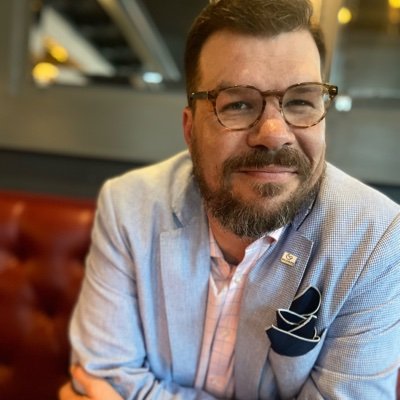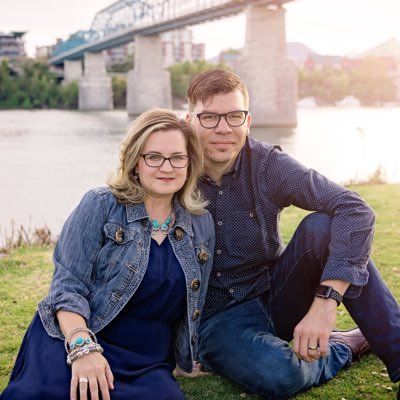
By Micah and Tracy Fries
The two years that have passed since we adopted our son, Haddon, have been amazing, exhausting, inspiring, confusing, and exhilarating.
In short, the past two years as adoptive parents have been a lot like our time as biological parents. Many issues that arise are different, no doubt, but the fundamental principles are still the same.
Adoption is amazing, but it’s also the hardest thing we’ve ever done. But we wouldn’t trade it for the world.
One of the most encouraging parts of being an adoptive parent has been the incredible community around us. From our family to our church to our friends, we’ve had an astonishing gift of kindness, assistance, and support from the people around us. We couldn’t be more thankful.
With that said, there are times when someone—usually someone who doesn’t know us that well—says something well-intended, but not always well thought out.
These little comments can often reflect a lack of awareness about adoption, or a lack of comprehension about what actually occurs in adoptive families. Sadly, these comments can often be painful or frustrating to adoptive families.
So, in light of November being National Adoption Month, we want to help those who are around adoptive families. Here’s our list of things you should never say to an adoptive family.
“He must be so happy to be in your home.”
The simple truth is this is often not the case, especially early in the adoptive process.
Yes, our home is nicer than the one they came from. Yes, our family provides stability they didn’t previously have. But in the mind of a young child, the nicer home is often not preferable to the home they previously knew.
In the first few months they’re trying to determine whether they can trust their adoptive family, or whether they even like them. The first few months are often little more than fighting through the fear of the unknown.
It’s true that eventually the new home may feel like a treasured home. But at least in the beginning, this new home is an unknown home and the unknown is a scary proposition.
“Does she get along with your real kids?”
The real struggle here is not the question about whether they get along. Sometimes they do, and sometimes they don’t—just like a typical biological family.
No, the real struggle is in the reference to your biological children as the ones who were your “real children.” Every adoptive family is likely to hear some variation of this statement at some point in their journey.
Adoption is hard. Every adopted child comes into the family with emotional—and often physical—baggage. Assimilation into a new family is usually difficult. Comments like this are usually offered by well-meaning people who haven’t thought through the implications.
Parents who hear this often are angered, and children who hear this can be hurt and confused. What’s more, it’s simply not true. This line of thinking undermines what actually happens in adoption.
When a child is adopted he or she is the parents’ “real child” in every sense of the word: emotional, legal, etc. Please don’t say this.
“He isn’t very friendly, is he?”
This one is challenging. Adoption often leaves children feeling vulnerable and unsure of themselves. Particularly early in the adoption their world has been tipped upside down and everything is new and unfamiliar.
In this environment adopted children can often be withdrawn, quiet, or shy. This is a protection mechanism in their life. They’re often carrying scars where they’ve been hurt, abandoned, or alone. Their quiet posture is often learned behavior that allows them to survive without getting hurt once again.
Children adapt at their own pace. Welcome them in, but don’t pressure them to be the life of the party.
“You must be an amazing family.”
We’re really not.
We wish you knew how untrue that is. Our family is flawed and broken. We’re not superheroes. We get angry at our kids, both biological and adoptive. We regularly don’t know how to parent well. We feel wholly inadequate.
Adoptive families don’t adopt because they’ve figured it out in ways others haven’t. Instead, they adopt because they’re moved that a child needs a home.
Every adoptive child walks into a home with some level of dysfunction. Only Jesus can heal, redeem, restore and ultimately prove faithful in an adoptive family.
When adoptive families are held up as some sort of morally superior family model it both frustrates the adoptive family and makes non-adoptive families feel like adoption is beyond their reach.
We don’t need some mirage of superhero adoptive families. We need broken families who love Jesus and children and are willing to welcome those children into their families.
Finally, the truth is that the only way we persevere is by trusting in Christ. Adoption is hard. It can be so demanding that some days you’ll wonder if you can even go on. On those days we often remind ourselves of this stanza from a poem written by John Piper:
May every cry, “I can’t!”
When yet, in fact, I must
Become by grace, “He can.”
And then in Him, I trust.
Adoption is beautiful. It’s hard, but it’s beautiful. While there are certainly things you shouldn’t say to adoptive parents, don’t let that scare you from saying something.
Be a friend to your adoptive acquaintances. If you say something you shouldn’t, apologize and try again. Most of all, be a friend and a supporter.

Micah Fries
Micah is the Director of Engagement at Glocal.net and the Director of Programs at the Multi-Faith Neighbor’s Network. He has served as a pastor in the United States and as a Christian minister in Burkina Faso, West Africa.

Tracy Fries
Tracy is a stay-at-home mom who loves adoption. She is passionate about her husband, her kids, and Jesus.










